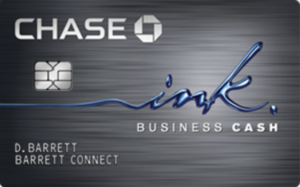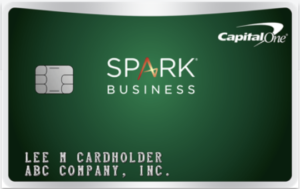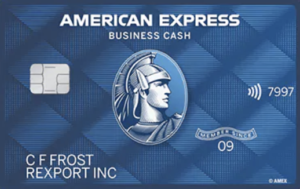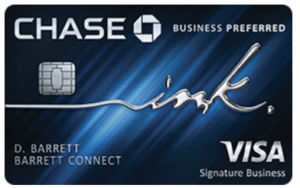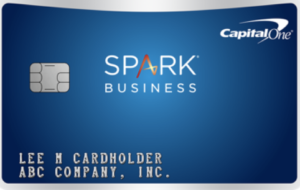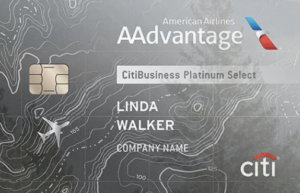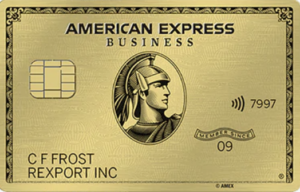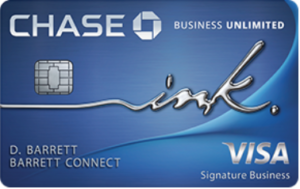Want to jump straight to the answer? The best start-up business loans with bad credit for most people are Upstart or Lendio.
Funding a start-up is a challenge. Most lenders want to look at your financial statements, annual turnover, business tax returns, collateral, and other financials that you’re yet to build up to par. The challenge is even more significant for startups with bad credit.
Fortunately, some alternative lenders specialize in funding startups with bad credit, regardless of how long you’ve been in business.
The Top 5 Best Start-Up Business Loans With Bad Credit
- Upstart — Best For No Credit Check Loans
- Lendio — Best Marketplace Lender For Comparing Business Loans
- Bluevine — Best For Lines of Credit
- OnDeck — Best for Short-Term Loans
- Credibly — Best For Multiple Loan Options

Upstart – Best For No Credit Check Loans
- No minimum credit score
- Flexible repayment schedule
- Access to free financial tools
- Prequalify with a soft credit check
Many startups haven’t been in business long enough to build a credit history. In this case, traditional lenders like banks are out of the question. Fortunately, Upstart is one of the first lenders to offer loans to people with no credit history, a trend that continues to date.

While Upstart offers different types of loans, its unsecured personal loans have no credit history requirements. Plus, you can use the loan to fund your startup since Upstart doesn’t restrict how you can spend the personal loan.
So how does Upstart qualify borrowers?
The lender doesn’t check for financial information such as credit or payment history. Instead, Upstart uses alternative criteria, such as employment and educational experience. The loan is also unsecured, meaning you don’t have to put up any collateral.
The best part is Upstart doesn’t have a minimum education attainment requirement. So you can still qualify for a loan regardless of your education level.
Additionally, Upstart reports to major credit bureaus like Experian, Equifax, and TransUnion. Therefore, you can slowly build your credit history and creditworthiness as you make regular and timely payments.
Upstart offers personal loans between $1,000 and $50,000. In addition, the loan terms vary between three and five years. Finally, Upstart loans have a fixed interest rate between 5.6% and 35.99% with no prepayment penalty.
Furthermore, Upstart transfers funds in as little as one business day. However, you’ll need to accept the loan before 5 PM ET Monday through Friday to receive funds by the end of the following business day.
Upstart also has a simple application process. Simply check your rate, and choose the loan amount and preferred loan term. Neither of these processes affects your credit score. The lender offers other loans, including car refinance, debt consolidation, and small business loans.
Specifically, a small business loan may be a good alternative for a startup with a credit history. There’s a minimum credit score of 580 and at least one year in business. You don’t have to put collateral, but you may be required to sign a personal guarantee.
Upstart’s small business loans range from $5,000 to $200,000. Overall, this lender has something for everyone. So whether you have poor credit or are deemed unscorable by the CFPB, Upstart certainly has a loan option for you.
Lendio – Best Marketplace Lender for Comparing Business Loans
- Compare loans from different vendors
- Borrow up to $750,000
- Just one application to fill out
- Access high-profile lenders
If you prefer to price shop before accepting a loan, Lendio offers a convenient marketplace to compare interest rates and loan terms. Lendio has more than 75 lending partners in its network. The platform is also free to use. You only pay after accepting the loan.

The best part about the marketplace is its painless application process. Rather than apply to different lenders, you only fill out one Lendio application. Then, the platform will match you with potential lenders so you can choose the best loan.
Lendio offers startup business loans ranging from $500 to $750,000, with loan terms of up to 25 years. The interest rate varies from 0-17%, and you can receive funding in two to four weeks. You’ll need a credit score of 680 or higher, at least three months in business, and at least $6,000 in average monthly revenue.
Most startups with poor credit may not qualify for the Startup Business Loan product from Lendio. But not to worry. The marketplace also has other types of loans, including:
Business Line of Credit – You can borrow between $100,000 and $500,000. The requirements include a minimum credit score of 560, at least $50,000 in annual revenue, and at least six months in business.
Short-term Loan – You can borrow between $25,000 and $700,000. The loan terms range from three to ten years, with interest rates between 8-36%.
Business Term Loan – Borrow between $5,000 and $20 000 with interest rates as low as 6%. The term loans vary between one and five years, with the possibility of next-day funding. You’ll need a credit score of at least 600, six months or more in business, and at least $8,000 in monthly revenue.
Equipment Financing – You can borrow between $5,000 and $5,000,000 with interest rates as low as 7.5%. The loan terms vary between one and five years, with the possibility of next-day funding. You’ll need a minimum credit score of 650 or higher, one year in business, and at least $50,000 in annual revenue.
SBA Loan – Lendio offers SBA-backed loans up to $5,000,000. These loans have terms ranging from 10 to 30 years. You’ll need a credit score of at least 600, two or more years in business, and at least $8,000 in monthly revenue.
Lendio also offers special loans for underserved small businesses, including veterans, women, and minorities.
Bluevine – Best For Lines of Credit
- Lines of credit up to $250,000
- No hidden fees
- Potential same-day funding
- Simple application process
Bluevine specializes in providing small businesses with lines of credit (LOCs). You can borrow up to $250,000 with interest rates as low as 6.2%. You’ll also receive a decision in as little as five minutes after submitting your application.

Most banks require a credit score of 700 or higher to open a line of credit. Bluevine is more lenient, with a minimum credit score of 625. You can qualify for a LOC with as little as 24 months in business.
You’ll also need at least $40,000 in monthly revenue to qualify for a Bluevine LOC. This is a revolving line of credit. It means that your funds replenish as you repay your loan.
Notably, Bluevine doesn’t charge extra fees. For example, you don’t have to pay opening, maintenance, prepayment, or termination fees. This makes Bluevine an ideal lender for keeping your borrowing costs at a minimum.
Like most other lenders on our list, Bluevine has a quick and easy application process. First, you only need to connect to your business checking account. Then, Bluevine will assess your eligibility and communicate a decision in five minutes.
Bluevine also offers some of the quickest funding times of any lender. For example, you can pay $15 to use the bank wire option. Then, you’ll receive your funds just a few hours after the lender approves your loan. Alternatively, the free ACH transfer option takes one to three business days to receive funds.
Unlike other lenders that only offer daily and weekly payments, Bluevine offers weekly and monthly payments. Finally, the repayment period is typically between six and twelve months.
As a result, Bluevine is an excellent option for a startup that doesn’t want to be stretched thin with daily payments and short repayment terms.
OnDeck – Best For Short-Term Loans
- Transparent loan terms
- Same-day funding up to $100,000
- Cheaper rates for returning clients
- Good for building your credit score
Although OnDeck also offers lines of credit, the lender is a terrific option for startups looking for term loans. OnDeck offers short-term loans between $5,000 and $250,000 with repayment terms of up to 24 months. So you only need one year in business which is within the range of most startups.

You need a credit score of at least 600 to qualify for a short-term loan. It’s higher than some alternative lenders but certainly lower than most banks. You also need at least $100,000 in annual revenue to qualify.
After paying off half of your initial loan, you can qualify for a second short-term loan. OnDeck also rewards return clients. You’ll get lower interest rates the next time you apply for a loan.
You can choose between daily and weekly payments. The short payment periods may not be an issue for a business with solid cash flow. However, some startups may prefer a different lender with extended repayment periods.
OnDeck is transparent about its cost of borrowing. Most short-term loans have an APR of 35%. Origination fees vary between 0%-5% of the borrowed amount. The maintenance fee ranges between 0.4% and 0.42% of the total loan amount.
The application process is straightforward. First, you’ll need to provide documentation such as EIN, month-to-date financial statements, and at least three months’ business bank statements. Then, you’ll receive a call from an OnDeck loan advisor to explore your options.
There’s also the possibility for same-day funding up to $100,000. For example, you may receive same-day financing if you choose ACH or wire payments. You only need to accept the loan and check out online by 10.30 AM ET the day of or 7 PM ET the day before.
OnDeck provides a SMART BOX tool to help you understand your loan product. For example, SMART BOX describes typical loan pricing metrics like factor rate, annual percentage rate, total interest percentage, and average monthly payment. So you know exactly what you’re paying.
Lastly, OnDeck is a terrific option for startups that want to build their credit score. The lender reports to the major credit bureaus, including Equifax, Experian, and PayNet. Making timely OnDeck payments will help you qualify for cheaper loans in the future.
Credibly – Best For Multiple Loan Options
- Multiple loan types
- 500 minimum credit score required
- Quick application process
- Fast funding
A loan marketplace like Lendio is a terrific choice for comparing loan options. However, comparing different lenders can be tricky since each lender has different loan requirements and underwriting processes. If you prefer to deal with a single lender, Credibly offers multiple loan products for all types of businesses, including startups.

First, Credibly has some of the lowest credit score requirements in the industry. This flexibility is excellent news for startups with bad credit. For example, you can qualify for a loan with a credit score of 500 and just six months in business.
The lender also has an extensive portfolio of financial products. Your options include:
- Invoice factoring
- Equipment financing
- Long-term business loans
- Merchant cash advances
- Working capital loans
- Business lines of credit
Credibly also has a seamless application process. First, you can prequalify online by providing a few details about your business. Then, you’ll receive approval in as little as four hours. The lender also offers same-day funding for some of its loans.
Depending on the loan type, you can borrow up to $400,000. However, there are minimum business revenue requirements. For example, you’ll need at least $15,000 in monthly revenue to qualify for working capital loans and merchant cash advances. Similarly, you’ll need at least $50,000 in annual income to qualify for a business line of credit.
The best part is that Credibly focuses more on the business’s financial health than its credit history. As a result, the review process makes it easier for startups with bad credit to qualify for a loan. In addition, Credibly offers multiple repayment options, including daily, weekly, and monthly payments.
Finally, Credibly offers competitive rates, especially for a lender with low credit score requirements. The lender has factor rates as low as 1.09.
How to Find The Best Startup Business Loans With Bad Credit For You
Finding a startup with bad credit shouldn’t be difficult if you know where to look. Here are some of the things to consider when choosing alternative lenders. We also used the same criteria when assessing the best startup loans featured in this review.
Qualification Criteria
Different lenders have different ideas of what constitutes bad credit. But, again, it depends on the lender’s credit scoring model. So check if the lender’s credit score requirements line up with yours.
For example, FICO considers anything below 580 to be a poor or bad credit score. The scoring model also rates credit scores between 580 and 699 as fair. Anything above 699 is considered good.
Some lenders apply the VantageScore credit scoring model, which has a higher threshold for good credit. For example, this model considers scores below 661 as bad credit scores. Fair credit ranges between 601 and 660, according to this model. Finally, credit scores above 660 are considered good.
The good news is that most alternative lenders have lenient credit score requirements. For example, Credibly offers loans for credit scores as low as 500. Also, don’t forget to check other qualification criteria.
Time in business is an essential requirement. You need less than three years in business to be considered a startup. But, again, alternative lenders like Credibly and Lendio require at least six months in business.
Finally, you’ll need to check the minimum monthly or annual revenue requirement. Again, this requirement varies depending on the lender. Lenders with lower credit score requirements typically have higher annual or monthly revenue requirements.
Most lenders will overlook lower credit scores if your business generates much revenue.
Interest Rate
Lending to startups with poor credit is risky. So, lenders offset some of the risks by charging higher interest rates. However, if you shop around, the loan doesn’t need to be expensive or excessive.
Unfortunately, most lenders don’t advertise their top interest rates. Instead, they’ll show the minimum interest rate, which most businesses don’t qualify for. So, prequalify for a loan before accepting the terms and price shop to get the best interest rate available for your credit score.
Most consumer advocates consider an APR of 36% or lower affordable. This figure is much higher than what most traditional banks offer. But, you can still use it as a guideline when shopping for affordable startup loans with bad credit.
Repayment Terms
Most startups have unpredictable cash flows. So you don’t want repayment terms that will put more financial stress on your business. Therefore, choose a lender who offers flexible repayment terms.
Most lenders have daily, weekly, and monthly repayment schedules. The monthly schedule is ideal, so make sure your lender offers this unless you have a stable cash flow. Some lenders also offer flexible terms, allowing you to change your repayment period at no extra cost.
Application Process & Time to Fund
Alternative loans are meant to be more accessible than traditional bank loans. However, some business owners with stellar credit still prefer alternative lenders for the quick application process and fast funding time.
Ideally, the lender should let you prequalify. You’ll need to enter a few details about your business and instantly determine if you qualify for the loan. It will save you time applying for loans that don’t fit your business.
Equally, you want a lender that pays out quickly. Some lenders approve loans the same day and send funds directly to your bank account as soon as the next day. These factors are critical if you need working capital urgently.
Loan Options
Some lenders specialize in one or two types of financing. Others, like Credibly, offer half a dozen or more loan options. Regardless, ensure that the lender’s financial products match your desire.
Some popular loan options include:
- Invoice factoring
- Long-term business loans
- Equipment Financing
- Merchant cash advances
- Business lines of credits
- Working capital loans
It’s also helpful if the lender provides a loan advisor. The expert can help guide you through the best loan products. Ideally, this service should be free and part of the application process.
The Top Business Loans With Bad Credit in Summary
Business loans aren’t just reserved for thriving businesses with stellar credit. Today, almost anyone can qualify for a loan from an alternative lender. In addition, a poor credit score is no longer a barrier to entry for startups, with some lenders accepting scores as low as 500.
Loans for bad credit typically come with high interest. Compare different loan options to ensure you’re getting the best deal. Besides, alternative lenders offer more perks, including a quick application process and fast funding times.







